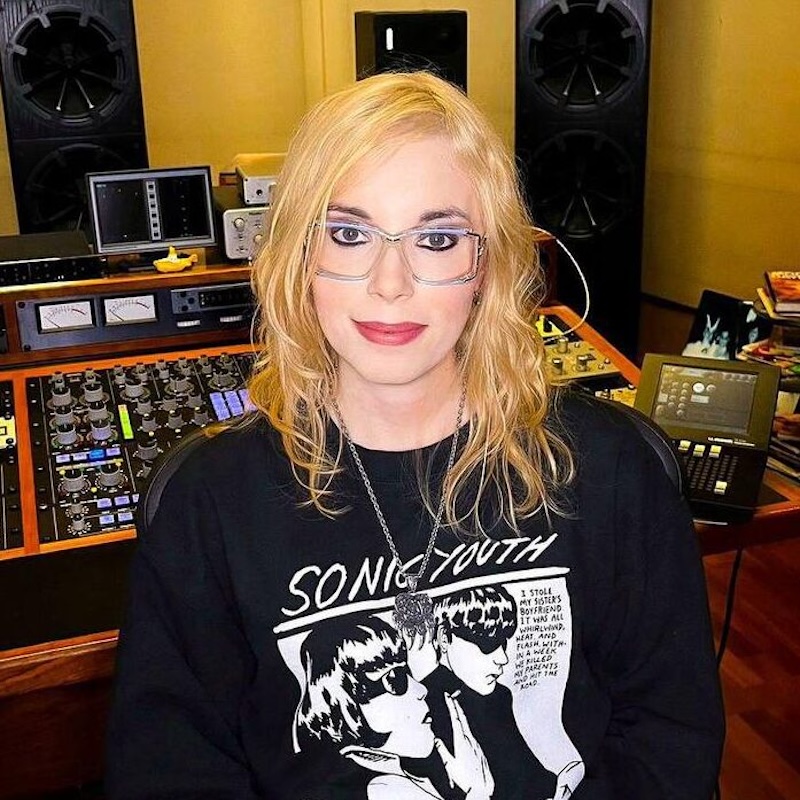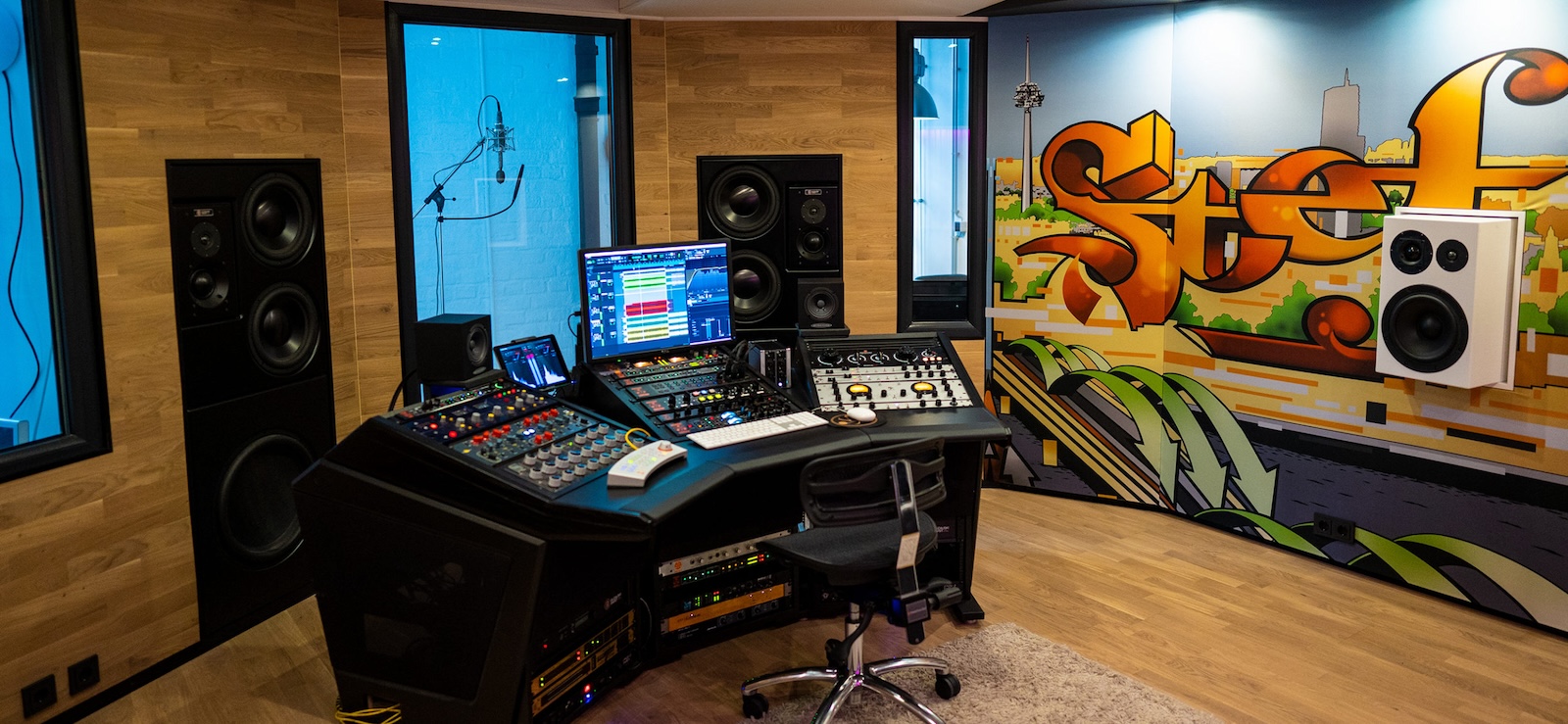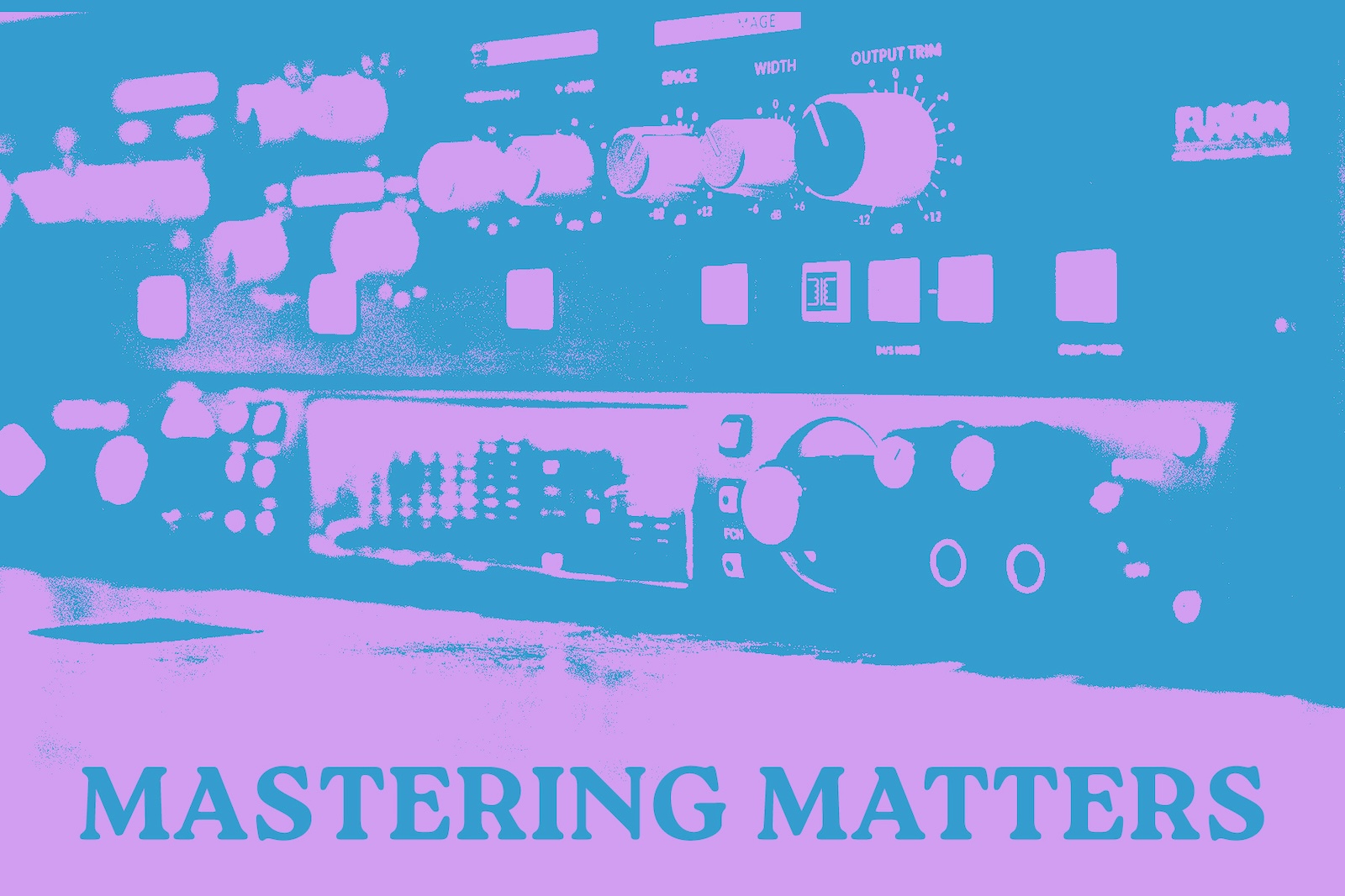Mastering is the final stage of post-production in the creation of music, allowing for cohesive volume across all songs (should it be an album or EP format), and is also a crucial step in managing the length between songs, and a balance in the frequencies and sonic elements of your music. Mastering engineers take what a mixing engineer has done, and make sure that the mix will translate its very best, regardless the final listening environment/medium. This covers everything from streaming to physical releases—and different types of mastering are required for each.
Mastering engineers are also a form of quality control, and if there are acoustic or sonic anomalies in your mix, they will spot them, and in some cases ask for them to be fixed before proceeding with the mastering process.
Mastering, may in many ways be thought of as the sonic gloss: bringing forward some sonic elements, adding clarity to the highs, a punch to the lows, and more oomph to the presence of a particular piece. This is not just about loudness, but about the careful balance of dynamics while keeping the original integrity of the dynamics intact.
In order to get right down to the best understanding of these nuances, we’ve had some of the very best mastering engineers from around the world weigh in on some of the most pressing questions that come up when musicians approach the mastering stage of their music. Whether you’re a hobbyist, a signed artist, or a self-releasing and producing artist, knowing how and when to pick the right people for your team can go a long way for preparing your releases for their best success, longevity, and presentation.
So what exactly does a mastering engineer do? Let's dive in.
What Does a Mastering Engineer Do?
[Above: a brief breakdown of the mastering process by mastering engineer Stuart Hawkes of Metropolis Mastering.]
When asked what exactly a mastering engineer does, Mike Hillier of Metropolis Mastering had this to say:
"At its most fundamental, a mastering engineer's role is to ensure the audio in a song is treated in such a way that it will translate as perfectly as possible onto whatever the release format is. This includes ensuring that the frequency balance and overall loudness profile is matched with other songs of a similar style, such that if your music is placed on a playlist alongside other, similar artists, that it will sound every bit as good, and ideally even better. Additionally, when working on an album, the mastering engineer will ensure that the flow from each song into the next works: making sure the gaps or crossfades are the right length and shape, that the relative levels of each track are the same, and that the end listener won't ever be taken out of the listening experience. For me, this is key—everything I do should be so invisible that the listener never hears the mix or the mastering, and they just hear the music.
"Furthermore, the mastering engineer often has the role of ensuring the final metadata is all in place, embedding ISRC codes, and ensuring the artist name, album title, and song names are all perfect."
Meanwhile, Natalie Bibby of Metropolis Mastering also offered these insights into her craft:
"Mastering is the final stage of audio production; it comes after mixing but right before distribution…that is, right before you release your music. The difference between mixing and mastering in very basic terms is that in mixing, you are working on the individual components in the song, for example: adding effects to different instruments, changing the volume of each instrument in relation to each other, panning etc. In mastering, we work on the stereo WAV or AIFF you bounce or export from your DAW (such as Logic or Pro-Tools). So, this means we are adjusting the overall sound and balance of the song. It isn’t changing or remixing your song—it is sculpting it in a way to make sure the artist’s original intention is as forward in the mix as possible and translates.
"Some people may not realize that we do the fade-in and outs of tracks, the gaps between tracks, and we can also input metadata for you too. We can produce all the different final release formats, including: DDP (to make CDs from), Apple Digital Masters, 24-bit hi-res files, 16-bit files for Spotify, and of course, we can cut your music to lacquer, which goes off to the factory to be pressed to vinyl.
"To further break down exactly what the mastering skillset is—it is comprised of creative enhancement and quality control, leading to finalization. I appreciate that the term 'quality control' sounds clinical and cold, but what it really means is that sometimes, corrective processing occurs as part of mastering as well. This could include de-noising or de-clicking, for example.
"The sum of this skillset in action is that when you get your song back from mastering, essentially you are getting a tick of approval. I am saying: this has been processed, fine-tuned, and quality-controlled to a commercial level. It sounds the best it can, there isn’t anything 'wrong' with the mix, it is now ready for release."
When and Why Should You Work With a Mastering Engineer?
All of these are very valid and important technical reasons why you might want to work with a mastering engineer. This being said, many people wonder if it’s a skill they can simply cultivate on their own, and when it is really time to refer to a professional.
Billy Bowers noted that, "Of course you can learn this on your own. It is a specialized skill though, and many people would rather spend their time doing other things. People these days are expected to have so many specialized skills they may lose track of their main purpose. You should use a professional when you like their work and think it sounds better than what you can do."
Dave McNair offered this valuable insight: "Mastering can obviously be learned, but it requires a a monitor system and room that gives enough accurate information to make very small decisions. The advantage a professional has, other than a very good monitor environment, is having no prior bias as to what is happening with a mix. This is a major advantage."
 Natalie Bibby, mastering engineer at Metropolis Mastering.
Natalie Bibby, mastering engineer at Metropolis Mastering.
Natalie Bibby echoed similar sentiments, noting that, "To some degree you may be able to get the bare bones understanding of it; how to put a digital limiter on your track; perhaps using references to help guide you. However, I believe to really develop the artistry and skill of mastering in its fullness, you need to be taught by experienced professional mastering engineers. More importantly, in order to master you must have access to the right tools for the job. Most critically, you will need a good sized room that is designed and acoustically treated for mastering, as well as full-range loudspeakers...not just near-fields. Without the room and especially the full-range loudspeakers, it's extremely difficult to accurately monitor the low end. Actually, some of my clients who mix at home often send me the bass and also the kick as two separate stems to the rest of the mix because they recognize this. They understand that they can't seem to get the mix right in their home environments, no matter how many playback systems they reference on. With how my room was built, the type of monitoring system I have and how it is calibrated, I know I can trust that what I hear is really the truth and fullness of the mix. So for all of these reasons, I believe you should always refer to a professional mastering engineer."
Take it from the pros: most if not all of them are musicians too, and many found their way to mastering after years of technical training. While it may be tempting to try to own all the stages of your production process, enlisting the proper team can give you time back to delegate to other tasks, and the task of being an artist is no small one! So, what are some of the disadvantages of trying to master your own music?
Stefan Heger of Stefan Heger Mastering succinctly noted that, "...you simply would not know how it would sound…the important point is, [would it] help you free up time, energy, and creativity if you would not have to worry about mastering? Yes, it would."
Dave McNair cautioned about "being too 'in the bubble' to have enough objectivity—also, working in the same room you mixed in. Every room has some errors, and trying to master in the same space you mixed in is a real disadvantage because your room errors will contribute twice to the end result." This is another reason that it is worthwhile to work with dedicated mixing and recording facilities, where possible!
Natalie Bibby echoes some similar sentiments, but also added that, "Lastly, without a professional mastering engineer; your mix has not been through the checks and subsequent adjustments, corrective processing, and balancing to bring it to a commercial standard. It may sound good enough in your room at home, but you want to make sure it sounds good enough for the rest of the world. Mastering is all about making that translation, that jump from your space, your inner world to the rest of the world."
What Tools Do Mastering Engineers Use?

[Above: inside Stefan Heger Mastering, in Cologne, Germany.]
If you’ve gotten mastering fever, or are just curious to learn more about the process, we’ve asked these great mastering engineers what some of their tools are.
Stefan Heger said his tools are, "Ears! But jokes aside—a playback device and a recording device. Whatever is in between is a matter of choice, which is based on many hours or years of trying your choice tools."
Mike Hillier shared that he uses, "The most common and basic tools: EQ and limiting. Most of the time, this is all that's necessary to craft a great master. It's not about how many different tools you use, it's about how well you use two or three. Whilst in my desk I have six EQs, four outboard compressors, two outboard limiters, a couple of other miscellaneous tools, and hundreds of plug-ins on my DAW, usually I find a touch of EQ with the Sontec, or the Maselec, and then a bit of limiting with some plug-ins is all that is really required. It is just as hard knowing when to use something as when not to."
Dave McNair offered additional insights, adding that he feels, "The main tool is a great monitor system. The next most important tool is being able to listen in a way that allows you to hear the forest instead of only the trees. Attending to the trees comes after you get the forest to feel right. Cultivating an ability to constantly refocus from the whole mix to the individual parts and back again is a key tool in your toolbox."
Summing It Up
In conclusion, there is a lot of value to building out your production team, and knowing who to turn to for each stage of your production journey. Some mastering engineers offer attended sessions, and while its not always possible, its nice to sometimes visit and really see how their space works compared to what one might have at home.
As Mike Hillier noted, "I would always recommend working with a professional mastering engineer. Not only will they most likely have more experience and a better sounding acoustic space to work from, if you develop a working relationship with them, you can ask for feedback to improve your mixes." Mastering engineers are pretty friendly (most of the time), so it might be time to adopt one!
In the follow-up article Mastering Matters Pt. 2, we discuss what to expect when you're working with a mastering engineer, so that you can be ready to get the most out of the process.








